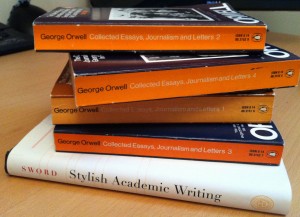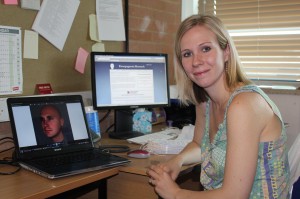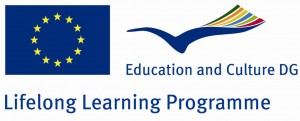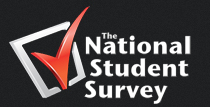Most of us know someone touched by dementia – a friend, relative or loved one. As the average age of our population grows ever older, the chances are some of us will be affected.
As such dementia is emerging as a new strategic priority for BU, with investment from our HEIF funds to create the Bournemouth University Dementia Institute, or BUDI as the team like to call it. The team is growing rapidly working on a range of funded dementia projects with more in the pipeline. Working with the Director of BUDI Anthea Innes, Lee-Ann Fenge, Sue Barker, Vanessa Healsip, Michele Board have recently completed a review of Higher Education Dementia Curriculums on behalf of the Higher Education Dementia Network. Work that reflects Anthea’s previous experience leading masters and undergraduate programmes in Dementia Studies and the dementia focus of social work and nursing colleagues within the School of Health and Social Care. A number of research and knowledge exchange projects are underway including:
- An ongoing programme of work funded by Bournemouth Borough Council involves the BUDI team delivering a range of activities via two different programmes; a ‘cupcake club’ and a technology group. The evaluation report isn’t due until February 2013 so a lot is happening over the autumn months.
- A BU Research Development Grant enabled an early collaboration between the Schools of Tourism and Health and Social Care. This project led by Anthea Innes (HSC) and Stephen Page (Tourism) is currently being written up for publication and dissemination. It is the first study to conceptualise ‘Dementia Friendly Tourism’ as an area worth investigation to try and improve the leisure opportunities for those with dementia and their families; but the project will also produce recommendations to help advise tourism and leisure providers to enhance their provision to promote inclusion of those with dementia.
- An international study GRIID (Gateway Rural International Initiatives in Dementia), involving partners from Australia, Canada, India, Sweden and the UK is also in the writing up stages following a policy synthesis and survey of Alzheimer Disease International (www.adi.co.uk) members.
- European work is on-going too, focused on Malta where Anthea has long established links working on improving the quality of care offered in Maltese hospital wards
- A multi-site NIHR project has just commenced exploring site loss and dementia for people who continue to live at home. This is a collaboration between the Universities of York, BU, Cambridge, Worcester and consumer organisations; the Housing and Dementia Research Consortium (HDRC); Pocklington Trust supported by the Alzheimer Society and the Macular Disease Society
But this is just the start with money being committed by many of large funding agencies this is a societal theme of the moment. BU is part of a large FP7 grant application currently first reserve for funding, and BU is coordinating a multimillion ESRC grant application with 12 other institution due for submission this autumn. Working locally is also very much on the agenda. Staff in BUDI are working for example in partnership with commissioners and clinicians across Dorset to secure funding via the NHS South of England Dementia Challenge fund with BU as the evaluator for a number of innovative local projects proposed by those delivering dementia care every day.
BUDI launched 16 May 2012 just three months ago and the progress is impressive, but there is also a long way to go to achieve its objectives of making a real contribution to improving the lives of those with dementia and those who provide support whether they be family or paid clinicians and carers. This is not just an initiative launched from HSC but a cross BU one and I am delighted to announce the secondment of Samuel Nyman (Psychology, DEC) to BUDI to strengthen its work force and continue his existing collaboration with Anthea which includes a match funded BU PhD Studentship with Anthea Innes and Marilyn Cash which is looking at the role of gaming technology to support older men with dementia in rural areas. BUDI is looking for staff who wish to engage from across BU and is truly multidisciplinary in its approach and reach. There may be other who are interested in similar secondments and I would encourage them to get in touch with Anthea. DEC and Tourism are already involved with BUDI contributing staff and time but there is huge scope for others to get involved for example in the Media School. Why not drop Anthea a line and get in touch?
Also starting in September is Patricia McParland as BUDI Project Manager or Engagement Consultant, a post-doc appointment is pending, PhD student Ben Hicks will start soon and we will be advertising for an Associate Director for BUDI soon. BUDI has the full support of UET and is receiving strategic investment to make things happen quickly; dementia is of the moment as illustrated by the Prime Minister Dementia Challenge launched earlier this year and it’s for BU to cease this moment. BUDI offers the opportunity to have a real impact, to make a difference in our society, to develop practice and research and to do it quickly. Please get involved and get in touch with Anthea or myself directly.







 The results of the 2012
The results of the 2012 





















 New CMWH paper on maternity care
New CMWH paper on maternity care From Sustainable Research to Sustainable Research Lives: Reflections from the SPROUT Network Event
From Sustainable Research to Sustainable Research Lives: Reflections from the SPROUT Network Event REF Code of Practice consultation is open!
REF Code of Practice consultation is open! ECR Funding Open Call: Research Culture & Community Grant – Apply now
ECR Funding Open Call: Research Culture & Community Grant – Apply now ECR Funding Open Call: Research Culture & Community Grant – Application Deadline Friday 12 December
ECR Funding Open Call: Research Culture & Community Grant – Application Deadline Friday 12 December MSCA Postdoctoral Fellowships 2025 Call
MSCA Postdoctoral Fellowships 2025 Call ERC Advanced Grant 2025 Webinar
ERC Advanced Grant 2025 Webinar Update on UKRO services
Update on UKRO services European research project exploring use of ‘virtual twins’ to better manage metabolic associated fatty liver disease
European research project exploring use of ‘virtual twins’ to better manage metabolic associated fatty liver disease